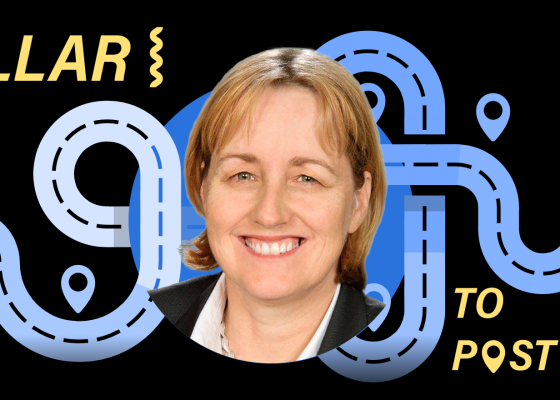An emotional Dr Teresa Anderson has fiercely rejected claims the hospital’s executive was unresponsive to concerns about widespread under-resourcing and fear of reprisal for speaking out.
Former Sydney LHD chief executive Dr Teresa Anderson has hit back at claims Concord hospital suffered from “chronic underinvestment” and that staff were fearful of speaking out for fear of reprisal.
Appearing at today’s hearing for the NSW Special Commission of Inquiry into healthcare funding, Dr Anderson, who is now head of the state’s SPDR implementation authority, faced questions about the headline-grabbing claims.
Responding to concerns raised by Associate Clinical Professor Winston Cheung, ICU senior staff specialist at Concord hospital, in May 2022 regarding widespread under resourcing and a culture of fear silencing hospital staff members, Dr Anderson adamantly denied such a culture had been perpetuated at Concord hospital during her tenure as district chief executive.
“The issue with the commentary is that it is very black and white, that there is no reporting [and that] action only happened because problem ended up in the newspaper, we took a lot of action because the issues were raised with us, not because of things being in the paper,” Dr Anderson said.
“In fact, Concord does have a high rate of reporting, if you look at Concord’s reports compared to those other parts of the districts and elsewhere, it didn’t stand out as having low reporting rates.
“Nothing that has been shared with me that indicates that staff were prevented from expressing their concerns.”
Dr Anderson also rejected Professor Cheung’s claim that mandatory training for staff at Concord Hospital had been established simply to achieve “minimum standards”, as well as his insistence that he medical staff council was best situated to determine funding priorities funding for hospital services compared to members of the senior executive who weren’t directly involved in service delivery.
“[The claim that] mandatory training at Concord was set up with the wrong intentions [and] no high performance intention to achieve excellence, I disagree with that, training is something that happens across all of NSW Health, it’s a ticker box, and it’s linked to particular policies, models of care etcetera,” she said.
“With 170,000 staff, it is important to say, you know, some training you really need to do. For example, advanced life support, so it is about setting standards for excellence, not a minimum standard.
“[He also says] we [the medical staff council] are in the in the best position to decide the priorities, people who manage the hospital finances do not look after patients, we can’t expect them to know what the community expects, their role is to facilitate resourcing of the community’s healthcare priorities, not to determine them.
“Under the Healthcare Act, the role of the district and the facilities is, in fact, to make sure that we’re not only looking at the finances, but we’re making sure that we provide high quality clinical care to the community.
“The medical staff council alone can’t determine the priorities, it has to be in discussion, it would be like having 170,000 staff in NSW Health determining the priorities, [instead] we have to balance them … and unfortunately, that means some people will be unhappy.
“Without more resources, it’s difficult, and even with more resources, it’s never going to meet everyone’s priorities.”
Dr Anderson grew tearful when describing the “difficult times” the district experienced during the covid pandemic, highlighting the challenges presented by her personal involvement in the statewide covid response which limited her capacity to engage directly with individual hospitals.
“It was a really traumatic time, I think we all have post-traumatic stress from covid, and it did take a toll,” she said.
“[Professor Cheung] uses a war like analogy in relation to that, the way that this was read by myself and by others is that the needs of staff were not considered in the [covid] response when my belief, and I think we have strong evidence to support it, is the wellbeing of staff was foremost in our thoughts and in our actions.
“In part, we were not able to go on site in the hospitals as much as we did previously, because of the restrictions and the fear of the fear of people meeting and contributing to a transmission of covid,
“In addition to that, the district was very involved in the state covid response, and I personally was very involved with that, and I do think that that took me away from the front line.”
When asked what steps she and other members of Concord hospital’s senior executive had taken to address the concerns raised by Professor Cheung, Dr Anderson said several meetings had been held with hospital staff to attempt to identify and resolve the issues but these efforts stalled as communication on the part of the medical staff council became “more and more adversarial and directive”.
“There were meetings with facility and department heads, with clinical directors, both with myself but also various members of the executive, to try to get to the bottom of the issues and address them, [and] the management team, including the director of medical services, the general manager, the director of medical services for the district would go to the medical staff council to report back on what we were doing to address the concerns, but it was difficult to get a handle on what else we needed to do,” Dr Anderson said.
“Some of the meetings that I went to myself, the impression that I formed was that despite members of the executive providing feedback in relation to concerns that have been raised, those actions were not adequate, and it was hard to work out what else needed to happen, other than being told they were not adequate.
“It wasn’t just about providing feedback, it was saying you must do this, and if you haven’t done that, then you have basically failed.”
Upon questioning, Dr Anderson admitted she had not raised with members of the senior executive involved in the conversations whether their approach to engaging with the medical staff council may have contributed to exacerbating tensions between both parties.
The inquiry continues.




